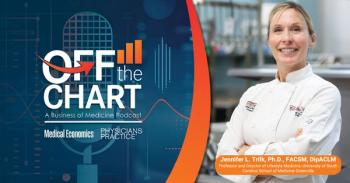
When Medical Staff Challenge a Physician's Authority
As a physician, I depend on my clinical team to take care of the busy work. But I have a problem when staff make medical decisions without my input.
I am known to be pretty easygoing with nursing staff. I don't yell, pitch a fit, or belittle clinical staff. My responses are generally mild, even when I am annoyed, frustrated, or incredulous. This may be causing problems. I wonder if I was more assertive about the things going on with my patients that I disagree with, I'd have an easier time of it.
This week, I've had two orders entered in my name that I disagree with. The first was a nursing evaluation for a patient who fell at her long term care facility. She had physical therapy ordered, but the facility requested a nursing evaluation. I used to just go ahead and sign these, assuming that the request was based on sound clinical judgment. In the last year, as I've started to question orders, I realize how often requests are reactive rather than thoughtful. No one can really tell me what the nursing evaluation is supposed to accomplish for my patient. Since he was seen in the emergency department, my office, and a specialist's office, I don't know what additional information the nurse will obtain, even if she is the absolute best nurse. No one else seems to know why the nursing evaluation is needed, either.
This morning, I was informed that a urine culture was ordered on one of my patients under my name through a message sent only as an FYI. The lab staff decided she needed a culture based on an abnormal urinalysis. However, the staff member apparently did not review any of the last several years' worth of urinalysis results for this patient, all basically the same. Am I supposed to sign the order or refuse?
I welcome clinical input from everyone who works in our clinic. Regardless of the level of education or training, each staff member has an important contribution to make, even if it is the front-desk staff raising the alarm about a patient who just doesn't look right. However, the doctor's ordering pen should not be available for wide circulation. The reason that physicians and advanced practice clinicians have the authority to write orders when others do not is because of the level of education and training that makes them qualified to interpret clinical information in the right context. This certainly does not mean that nursing and other clinical staff do not have adequate knowledge or experience. Indeed, I think very seriously before I countermand a nurse's recommendation. However, just as my nursing and clinical staff deserve respect for the roles they play in the patient's care, so do I.
The best possible scenario for a physician or advanced practice clinician is to have a clinical staff member give us an "SBAR" briefing - the clinical situation, patient's background, their assessment and recommendation. It is infrequent that I would disagree with a recommendation and usually only do so when I have additional knowledge that did not factor into the nursing assessment and recommendation. Yet, there should still be a conversation - out of respect for both the physician and advanced practice clinician and for the nurse's role.
Has anyone else experienced a similar situation? If so, how do you handle it? Tell me in the comments section below.
Newsletter
Optimize your practice with the Physicians Practice newsletter, offering management pearls, leadership tips, and business strategies tailored for practice administrators and physicians of any specialty.








